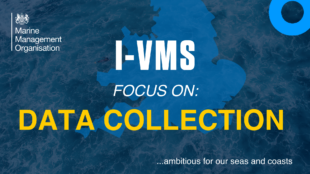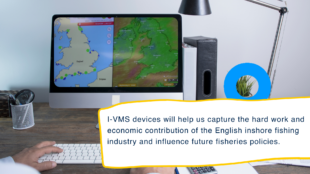
We are supporting industry to meet the requirement to have an I-VMS device installed and operational before the introduction of the Statutory Instrument (SI), scheduled for late 2022.
I-VMS will help us understand individual and fleet fishing patterns and ultimately understand our waters better. This is important because we can get a clearer picture of inshore fishing activity which means we will be able to make better decisions about future fisheries policy and wider marine management.
A common query we have received from fishers is related to the data that is produced by I-VMS devices, in particular “who can see it?” and “how will it be used?” I’d like to take this opportunity to reassure fishers about who can access the data, who owns it and how it will be used.
- The data transmitted from an individual vessel is the personal property of the fisher. It is the fisher who owns the data and as there is a legal obligation for the fisher to submit data to the MMO we will adopt strict protocols on its handling and security.
This is guaranteed in the privacy notice signed and agreed between the fisher and MMO as part of the grant payments application. Under this process, access is restricted under strict data protection guidelines to a limited number of partner fisheries, marine protection, and regulatory agencies such as regional Inshore Fisheries and Conservation Authority’s and the National Maritime Information Centre.
- I-VMS data from individual vessels cannot be shared with third party organisations, and unlike that gathered on the open Automatic Identification System (AIS), cannot be accessed by other fishers. This protects the business and commercial confidentiality of the data for each fishing vessel. For the first time this data also provides fishers with a documented electronic record of their fishing patterns. Fishers can use this data alongside other information such as catch recording as evidence to support future business plans, quota negotiations and grant applications.
- Ultimately, the data we receive from I-VMS devices will help us capture and better evidence the hard work and economic contribution of the English inshore fishing industry. This will then help to shape future fisheries policy development and better inform marine management decision making.

If you have any further questions, or would like to find out more about the I-VMS process, please visit our dedicated I-VMS pages: www.marinemanagement.org.uk You can also call our advice and support line on: 01900 508618 Monday to Thursday from 9am-5pm & Friday 9am-4pm, or email us at ivms@marinemanangement.org.uk